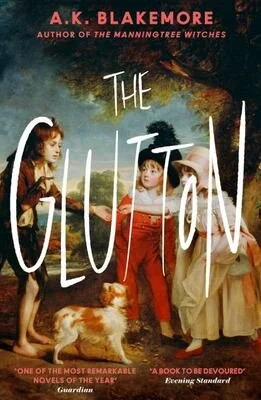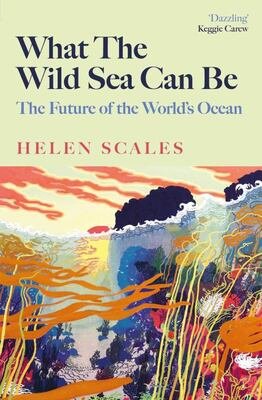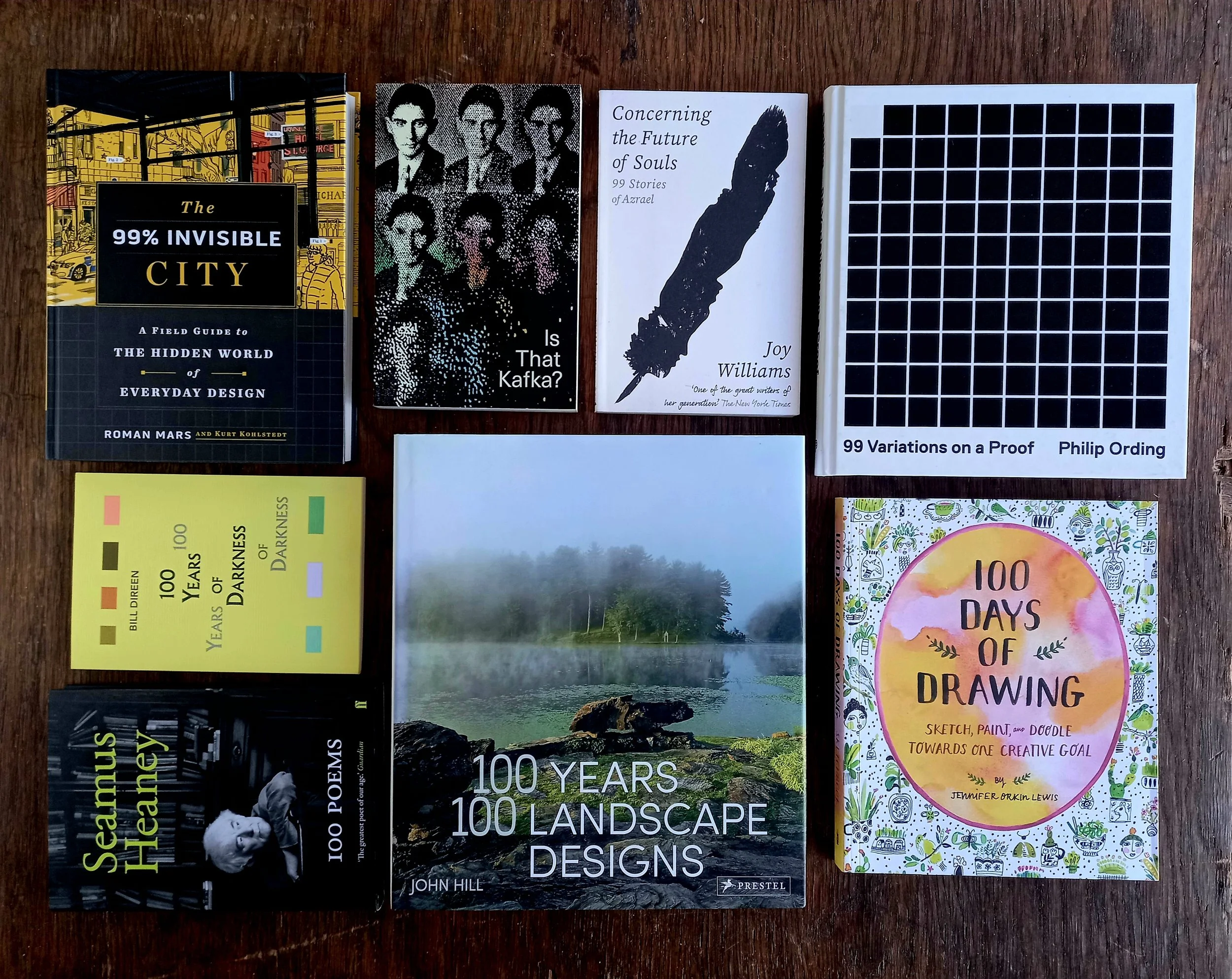Out of the carton and onto your shelf!
Click through to secure your copies. We can have them dispatched by overnight courier, or ready to collect from our door.
Mapmatics: How we navigate the world through numbers by Paulina Rowinska $40
How does a delivery driver distribute hundreds of packages in a single working day? Why does remote Alaska have such a large airport? Where should we look for elusive serial killers? The answers lie in the crucial connection between maps and maths.In Mapmatics, Dr Paulina Rowinska embarks on a fascinating journey to discover the mathematical foundations of cartography and cartographical influences on mathematics. From a sixteenth-century map that remains an indispensable navigation tool despite emphasizing the North-South divide, and maps of voting districts that can empower or silence whole communities, to public transport maps that both guide and mislead passengers, she reveals how maps and maths shape not only our sense of space and time but also our worldview. [Paperback]
Collected Works by Lydia Sandgren (translated from Norwegian by Agnes Broome) $30
Martin Berg is slowly falling into crisis. Decades ago, he was an aspiring writer who'd almost finished his novel, his girlfriend was the shockingly intelligent and beautiful Cecilia Wickner, and his best friend was the up-and-coming artist Gustav Becker. But Martin's manuscript has long been languishing in a desk drawer, Gustav has stopped answering his calls, and Cecilia has been missing for years. Not long after they were married, she vanished from his life and left him to raise their two young children alone. So who was Cecilia? Martin's eccentric wife, Gustav's enigmatic muse, an absent mother — a woman who was perhaps only true to herself. When Martin's daughter Rakel stumbles across a clue about what happened to her mother, she becomes determined to fill in the gaps in her family's story. [New paperback edition]
”Utterly gripping, like the films of Richard Linklater transmuted to the page. A magnificent doorstop of a novel.” —Guardian
Collected Short Fiction by Gerald Murnane $40
This volume brings together Gerald Murnane's shorter works of fiction, most of which have been out of print for the past twenty five years. They include such masterpieces as 'When the Mice Failed to Arrive', 'Stream System', 'First Love', 'Emerald Blue', and 'The Interior of Gaaldine', a story which holds the key to the long break in Murnane's career, and points the way towards his later works, from Barley Patch to Border Districts. Much is made of Murnane's distinctive and elaborate style as a writer, but there is no one to match him in his sensitive portraits of family members - parents, uncles and aunts, and particularly children — and in his probing of situations which contain anxiety and embarrassment, shame or delight.
’Murnane is without question both the most original and most significant Australian author of the last 50 years, and one of the best writers Australia has produced. This claim will be hotly contested by many — and perhaps most — Australian critics and readers, but I suspect it will become a commonplace sentiment internationally.” —Emmett Stinson, The Guardian
The Glutton by A.K. Blakemore $28
Sister Perpetue is not to move. She is not to fall asleep. She is to sit, keeping guard over the patient's room. She has heard the stories of his hunger, which defy belief: that he has eaten all manner of creatures and objects. A child even, if the rumours are to be believed. But it is hard to believe that this slender, frail man is the one they once called The Great Tarare, The Glutton of Lyon. Before, he was just Tarare. Well-meaning and hopelessly curious, born into a world of brawling and sweet cider, to a bereaved mother and a life of slender means. The 18th Century is drawing to a close, unrest grips the heart of France and life in the village is soon shaken. When a sudden act of violence sees Tarare cast out and left for dead, his ferocious appetite is ignited, and it's not long before his extraordinary abilities to eat make him a marvel throughout the land. [New paperback edition]
”An embarrassment of riches. A sensory assault fit to slap any reader awake with its gorgeous glut of baroque prose and wise, poised lessons on life, pleasure, class, desire, and love.” —Kiran Millwood Hargrave
The Haunting of Hajji Hotak, And other stories by Jamil Jan Kochai $33
Jamil Jan Kochai breathes life into his contemporary Afghan characters, moving between modern-day Afghanistan and the Afghan diaspora in America. In these arresting stories verging on both comedy and tragedy, often starring young characters whose bravado is matched by their tenderness. In ‘Playing Metal Gear Solid V: The Phantom Pain’, a young man's video game experience turns into a surreal exploration on his own father's memories of war and occupation. Set in Kabul, ‘Return to Sender’ follows two married doctors driven by guilt to leave the US and care for their fellow Afghans, even when their own son disappears. A college student in the US in ‘Hungry Ricky Daddy’ starves himself in protest of Israeli violence against Palestine. And in the title story, ‘The Haunting of Hajji Hotak’, we learn the story of a man codenamed Hajji, from the perspective of a government surveillance worker, who becomes entrenched in the immigrant family's life. The Haunting of Hajji Hotak and Other Stories is a moving exploration of characters grappling with the ghosts of war and displacement — and one that speaks to the immediate political landscape we reckon with today. [Paperback]
”An endlessly inventive and moving collection from a thrilling and capacious young talent.” —Jess Walter
The Dictionary People: The unsung heroes who created The Oxford English Dictionary by Sarah Ogilvie $28
The Oxford English Dictionary has long been associated with elite institutions and Victorian men. But the Dictionary didn't just belong to the experts; it relied on contributions from members of the public. By 1928, its 414,825 entries had been crowdsourced from a surprising and diverse group of people, from astronomers to murderers, naturists, pornographers, suffragists and queer couples. Lexicographer Sarah Ogilvie dives deep into previously untapped archives to tell a people's history of the OED. Here, she reveals the full story of the making of one of the most famous books in the world. [Paperback]
Free and Equal: What would a fair society look like? by Daniel Chandler $30
Imagine: you are designing a society, but you don't know who you'll be within it — rich or poor, man or woman, gay or straight. What would you want that society to look like? This is the revolutionary thought experiment proposed by the twentieth century's greatest political philosopher, John Rawls. As economist and philosopher Daniel Chandler argues in this hugely ambitious and exhilarating intervention, it is by rediscovering Rawls that we can find a way out of the escalating crises that are devastating our world today. Taking Rawls's humane and egalitarian liberalism as his starting point, Chandler builds a careful and ultimately irresistible case for a progressive agenda that would fundamentally reshape our societies for the better. He shows how we can protect free speech and transcend the culture wars; get money out of politics; and create an economy where everyone has the chance to fulfil their potential, where prosperity is widely shared, and which operates within the limits of our finite planet. This is a book brimming with hope and possibility — a galvanising alternative to the cynicism that pervades our politics. [Paperback]
”A brilliantly eloquent, incredibly insightful reimagining of liberalism.” —Owen Jones
”Inspiring. Impassioned. Full of hope.” —Zadie Smith
”This is a fantastic book.” —Thomas Piketty
World Without End by Jean-Marc Jancovici and Christophe Blain $65
an eminent climate expert takes a graphic novelist on a journey to understand the profound changes that our planet is experiencing. The scientist, Jean-Marc Jancovici, explains the workings of superpowers and history; oil and climate; ecology, economics and energy flows. He describes, in short, the world we live in today — a world whose future is deeply uncertain. The artist, Christophe Blain, intently listens and draws. As the pair come face to face with global warming, they — along with Mother Nature, Pop Eye and Jiminy Cricket, among others — create a picture of what the solution to our predicament actually looks like. It's not just about switching to renewable energy sources, they show. It's about rethinking everything: our energy supply, our economies, and our whole world. We're left with a vision of the future in which food, education, housing, transport and communities — in other words, all of us — work together and, with a few technological fixes, succeed in creating a world without end. [Large-format hardback]
Portrait Activity Book by Kathryn Box and James Lambert $22
An engaging and insightful introduction to portraits in art, this fun-packed children's book includes activities inspired by fourteen modern and contemporary artworks. Experiment with abstract portraiture like Pablo Picasso, design your own mask with the Guerrilla Girls, and try your hand at creating a word-only portrait inspired by Lorna Simpson! With fascinating facts about each artist's life and work throughout, this book is guaranteed to encourage a deeper understanding of art styles, techniques, and ideas, and introduce young readers to artworks in a variety of media, including photography, mixed media, sculpture, conceptual art, installation art and painting. [Large-format paperback]
What the Wild Sea Can Be: The future of the world’s ocean by Helen Scales $37
Beginning with its fascinating deep history, Scales links past to present to show how the prehistoric ocean ecology was already working in ways similar to the ocean of today. In elegant, evocative prose, she takes readers into the realms of animals that epitomise today's increasingly challenging conditions. Ocean life everywhere is on the move as seas warm, and warm waters are an existential threat to emperor penguins, whose mating grounds in Antarctica are collapsing. Shark populations — critical to balanced ecosystems — have shrunk by 71 per cent since the 1970s, largely the result of massive and unregulated industrial fishing. Orcas — the apex predators — have also drastically declined, victims of toxic chemicals and plastics with long half-lives that disrupt the immune system and the ability to breed. Yet despite these threats, many hopeful signs remain. Increasing numbers of no-fish zones around the world are restoring once-diminishing populations. Amazing seagrass meadows and giant kelp forests rivaling those on land are being regenerated and expanded. They may be our best defense against the storm surges caused by global warming, while efforts to reengineer coral reefs for a warmer world are growing. Offering innovative ideas for protecting coastlines and cleaning the toxic seas, Scales insists we need more ethical and sustainable fisheries and must prevent the other existential threat of deep-sea mining, which could significantly alter life on earth. Inspiring us all to maintain a sense of awe and wonder at the majesty beneath the waves, she urges us to fight for the better future that still exists for the Anthropocene ocean. [Paperback]
Ash’s Cabin by Jen Wang $38
Ash has always felt alone. Adults ignore the climate crisis. Other kids Ash's age are more interested in pop stars and popularity contests than in fighting for change. Even Ash's family seems to be sleepwalking through life. The only person who ever seemed to get Ash was their Grandpa Edwin. Before he died, he used to talk about building a secret cabin, deep in the California wilderness. Did he ever build it? What if it's still there, waiting for him to come back...or for Ash to find it? To Ash, that maybe-mythical cabin is starting to feel like the perfect place for a fresh start and an escape from the miserable feeling of alienation that haunts their daily life. But making the wilds your home isn't easy. And as much as Ash wants to be alone...can they really be happy alone? Can they survive alone? A superb graphic novel from New York Times-bestselling author and illustrator Jen Wang — a singularly affecting story about self-discovery, self-reliance, and the choice to live when it feels like you have no place in the world.
Slow Down: How degrowth communism can save the Earth Kohei Saito $40
The very logic of the capitalist system pits it against Earth's life support systems, and any ‘growth’ a system generates comes at an intolerable cost to our future. Drawing on cutting-edge research across multiple disciplines, Saito suggests that nothing but a transformation of our economic life can save us from climate collapse. Karl Marx himself reached this breakthrough at the end of his life, long before climate change had even begun. What few people realise is that it radically altered his vision of proletarian revolution. Now that we are entering our own end-game, we must grasp Marx's final lesson before it is too late. If we are to avoid the three terrible prospects of climate fascism, climate Maoism or mere anarchy, the future must belong to degrowth communism, a fair and humane existence within the limits of nature. There is no alternative: the endless acceleration of capital has run out of road. [Paperback]
”Slow Down has an almost magic ability to formulate complex thoughts in clear language, as well as to combine strict conceptual thinking with passionate personal engagement. What this means is that Saito's book is not just for anyone interested in ecology or in the problems of today's global capitalism, it is simply indispensable for those of us who want to SURVIVE in short, to all of us.” —Slavoj Zizek
”Philosopher Kohei Saito calls us to reject the logic of economic growth and embrace a different kind of plenty. The key insight, or provocation, of Slow Down is to give the lie to we-can-have-it-all green capitalism. In place of a command economy, Saito puts forth a model based on local experimentation.” —The New Yorker
Oil (‘Object Lessons’ series) by Michael Tondre $23
Oil remains the ur-commodity of our global era, having been distilled from ancient algae and marine life to turn modernity's wheels. Wars are fought over it. Some communities are displaced by its extraction, so that others may reap its benefits. But despite its heated history, few will ever see oil on the ground. Shrouded within a labyrinth of oil fields, pipelines, and manufacturies, it tends to be known only through its magical effects: the thrill of the road, the euphoria of flight, and the metamorphic allure of everything from vinyl records to celluloid film and synthetic clothing. Michael Tondre shows how hydrocarbon became today's pre-eminent power. How did oil come to structure selfhood and social relations? And to what extent is oil not only a commercial product but a cultural one--something shaped by widely imagined dreams and desires? Amid a warming world unleashed by fossil fuels, oil appears as a rich resource for thinking about histories of globalization and technology no less than the energetic underpinnings of literature, film, and art. [Paperback]
The New Classics: The Broadsheet Melbourne Cookbook, Recipes from the city’s best restaurants, cafes, and bars $60
Recipes from 80 of the city's most-ordered breakfast, lunch and dinner dishes, as selected by Broadsheet. Featured venues include Soi 38, Tedesca Osteria, Hope Street Radio, Manzé, Embla, Enter Via Laundry, France-Soir, Gimlet, Grill Americano, Nomad, Reine, Stokehouse, Florian, A1 Bakery, Pidapipó, Tarts Anon, and dozens more.
The Serviceberry: An economy of gifts and abundance by Robin Wall Kimmerer $38
As indigenous scientist and author of Braiding Sweetgrass Robin Wall Kimmerer harvests serviceberries alongside the birds, she considers the ethic of reciprocity that lies at the heart of the gift economy. How, she asks, can we learn from indigenous wisdom and the plant world to reimagine what we value most? Our economy is rooted in scarcity, competition and the hoarding of resources and we have surrendered our values to a system that actively harms what we love. Meanwhile, the serviceberry's relationship with the natural world is an embodiment of reciprocity, interconnectedness and gratitude. The tree distributes its wealth — its abundance of sweet, juicy berries — to meet the needs of its natural community. And this distribution insures its own survival. As Kimmerer explains, "Serviceberries show us another model, one based upon reciprocity, where wealth comes from the quality of your relationships, not from the illusion of self-sufficiency." [Hardback]




















































